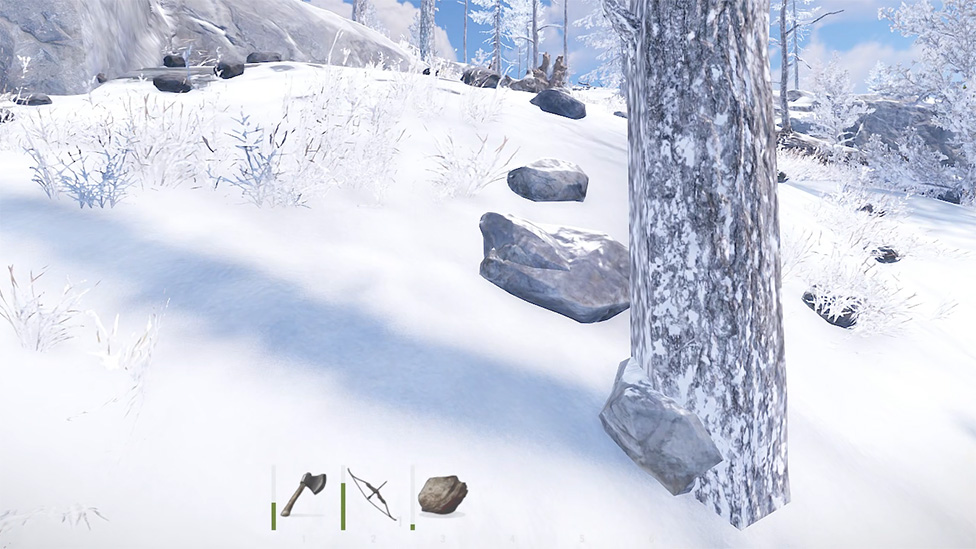Understanding and Mitigating Damage in Rust Game

Make Your Own Rust Server
It's long past just being a combat concept in Rust's big and dynamic world. In this article, we will explore different facets of damage in the Rust game, strategies to minimize its effects, and offer insight into how a player can fortify themselves from the inevitable forces that seek to deteriorate their progress.
Our Rust-dedicated servers prioritize efficiency, guaranteeing low-delay connections and superior stability. Leave server-related issues behind and focus on mastering the Rust gaming environment. Trust Scalacube for your Rust hosting needs, providing dependability and unrivalled performance. Boost your Rust multiplayer sessions with Scalacube—where hosting matches brilliance.
The Multifaceted Nature of Damage
Damage in Rust comes in different forms presenting various types of challenges towards the players. From the wearing off of the tools and weapons to the slow collapse of the structures, players have to fend out of a web of threats that may take away their lives. The following analysis brings damage aspects into details:Degradation of Tools and Weapons

Tools and weapons are not lively characters in the world of Rust; as they tend to wear out despite all the uses they undergo. The more a player keeps themselves busy in activities such as mining, crafting, or in combat, the faster their tools and weapons This negatively affects the efficiency of these items and further accentuates the need for players to keep an eye on their durability with additional replacements at hand. The necessity to be able to create repair benches or obtain additional tools themselves becomes critical under this long term destruction.
Building Effects
In Rust, building is lively, yet decay is a reality even for robust creations. Rust structures decay naturally, needing resources for upkeep. Ignoring this could cause instability, making bases prone to raiding or weather damage. Understanding decay and doing regular maintenance secures a longer lifespan for player-made buildings.Nature's Role
The environment in Rust isn’t just a setting—it actively influences the game. Radiation, cold, and wildlife are hazards causing player harm. Dealing with these requires suitable attire, equipment, and good knowledge of Rust's changing weather and animal systems.
Ways to Reduce Damage
Diverse damage types in Rust mean players must strategize to lessen their effects. Here are important strategies to guard against different damage types:
Making and Managing Tools
In Rust, making effective tools and handling them well minimizes damage. Players should focus on making repair benches to keep tools and arms in prime shape during tasks. Also, having extra tools on hand can turn the tide in pressing scenarios where quick tool substitution is key to survival.
Base Care and Preservation
Good care is vital to keep bases structurally sound. One should often inspect and fix damaged parts, improve materials, and place tool cupboards cleverly to delay decay. These habits make bases tough. They can resist time and potential attacks.
Nature Alertness

Knowing the risks of nature in Rust is key to lessen harm. Dress properly against cold or radiation, keep an ample stock of medical items, and always look out for wild animals. Preparedness is the answer to face various nature challenges. It helps to avoid unnecessary harm to players and their things.
FAQs
How quickly Rust tools wear out?
Tools in Rust wear out each time used. The wear-out pace differs based on tool type and its use. One must regularly check and promptly repair to keep it working best.
What leads to the decay of constructions by players?
Structures players build in Rust decay due to a few reasons. These include the kind of material, exposure to surroundings, and the lack of a tool cupboard. Proper care, use of premium materials, and smart placement of the tool cupboard can slow down decay.
What kinds of outfits defend against nature's harm?
Sure, in Rust, we've got gear that protects you from nature's harsh side. Hazmat suits, for instance, guard against radioactivity. There's also cold-proof stuff for chillier climates. Choosing the right gear to fit your surroundings is key to stick around.
What can I do to stop animals from harming me?
To ward off wildlife, stay alert and carry the right weapons. Distance weapons like bows or guns work well. You can also dress in armor for an extra shield. It's crucial to stay on guard and be prepared with Rust's various wildlife.
Wrap Up
In the tough world of Rust, keeping damage at bay is a never-ending job. From taking care of your tools, making sure your bases are solid, to dealing with natural hazards, players need to be versatile to survive. Strategic crafting, securing bases, and being aware of your surroundings help you resist forces that want to undo your progress. Succeeding in Rust isn't just about beating enemies. It's also about mastering damage control.Are you looking for the best Rust server hosting? You're in the right place! At Scalacube, our job is to give excellent services for avid Rust server fans. Whether you're an experienced player or a beginner, our devoted servers are created to cover all your Rust hosting requirements.
Experience flawless multiplayer gaming with our tweaked Rust MP hosting solutions. How do I make a Rust server? Scalacube makes it simple with easy-to-understand tools and unmatched support.
Our Rust-dedicated servers prioritize efficiency, guaranteeing low-delay connections and superior stability. Leave server-related issues behind and focus on mastering the Rust gaming environment. Trust Scalacube for your Rust hosting needs, providing dependability and unrivalled performance. Boost your Rust multiplayer sessions with Scalacube—where hosting matches brilliance.